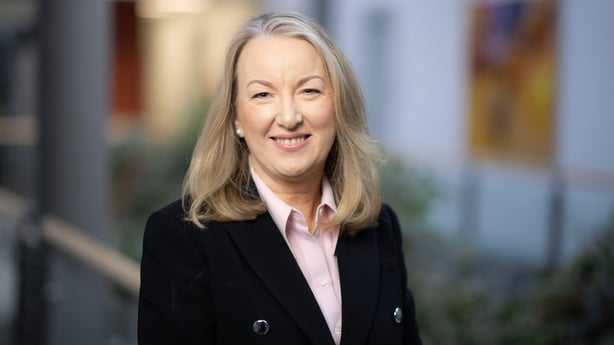The level of female representation on the boards of ISEQ-listed companies has increased by 21 percentage points in the last five years, the latest progress report from the Balance for Better Business group shows.
The business-led review group was established in 2018 with the aim of improving the level of female representation on the boards of companies.
The group has exceeded the voluntary targets it set at the time.
The latest update shows that the proportion of women on the Boards of ISEQ 20 companies this year is 39%, exceeding the 33% target set for 2023.
Across other listed companies, the percentage of women on boards is 28%, beyond the 25% target set.
Private companies with Irish ownership have remained steady at 22% since 2021, but there was an overall increase from 17% in 2019.
For the second consecutive year, Ireland features in the top ten countries in the EU for female board representation on listed companies.
However, when it comes to the proportion of women in senior leadership positions of listed companies, the picture is less encouraging.
The proportion of women on the senior leadership teams of ISEQ 20 companies is 27%, falling short of the 30% target set for 2023.
Other listed companies also missed their 2023 target, with female representation decreasing to 16% against a target of 25%.
Private companies have remained steady on this metric at 28% since the data was last measured in 2021, while multinational companies have achieved 30%.
The total number of female CEOs across all publicly listed companies has fallen to three, just 9% of all listed companies.
Two of these - Siobhán Talbot at Glanbia and Margaret Sweeney at Irish Residential Properties REIT - are planning to retire from their roles next year.

There are only two female chairs across all publicly listed companies, representing 6% of total company boards.
"The pace of change at senior leadership level for publicly listed companies remains slow," Balance for Better Business co-chair Aongus Hegarty said.
"While reforming the organisational culture that makes it difficult for women to progress within organisations can be challenging, to accelerate change, it is critical that companies take a gender-balanced approach to people processes and put gender at the heart of succession planning," he added.
Co-chair Carol Andrews said the group's focus was now shifting to addressing the representation of women on senior leadership teams.
"To address this challenge, businesses should develop gender balanced succession plans and pipelines for key leadership roles. By addressing the cultural barriers that prevent women advancing in organisations and providing concrete pathways to top positions we can enable sustainable and long-lasting change," she explained.
Launching the progress report today, Minister for Enterprise Simon Coveney confirmed the Government's intention to continue the initiative for a further five years.

